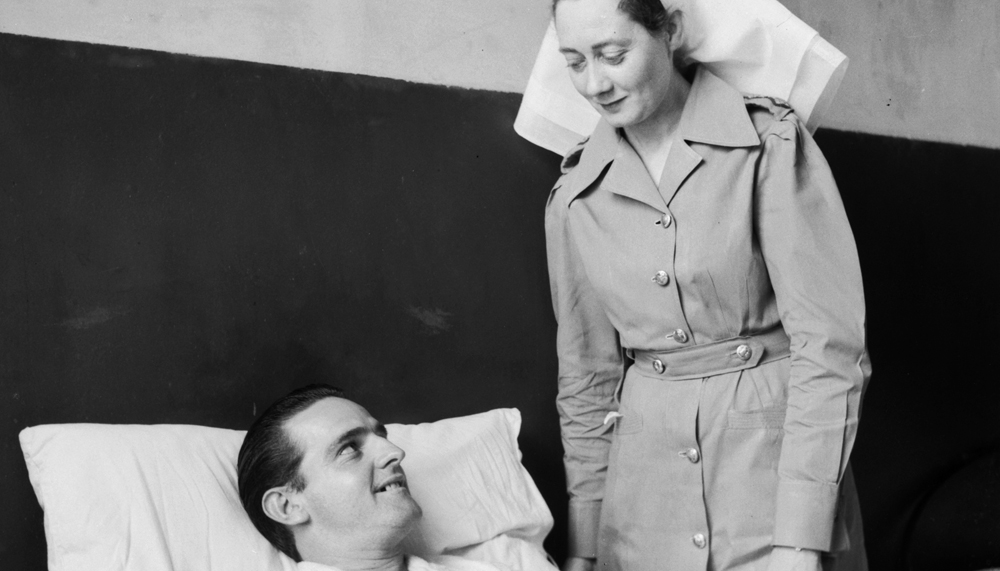In a career that spanned World War II to Vietnam, Brigadier Dita McCarthy had to care for wounded soldiers in sometimes primitive conditions. Linda Belardi reports.
The Royal Australian Army Nursing Service (RAANS) has lost its highest ranking officer, Perdita Marjorie McCarthy, aged 96.
“Dita” McCarthy of Mt Isa was a former matron-in-chief of the Royal Australian Army Nursing Corps and the first, and to date only, female nurse to reach the senior officer’s rank of brigadier in the army.
Don Rowe, NSW president of the RSL, said McCarthy was a pioneer for army nurses and a veteran of WWII, the Korean War, the Malaysian Emergency and Vietnam.
“Her dedication to her army career and to her patients was never more apparent than during the Korean War,” Rowe said.
“Her first hospital there was a bombed-out school in the suburbs of Seoul, in winter, with no running water or sewerage, hardly any electricity, and a constant flow of patients including not only wounded soldiers but troops who had been badly burnt by exploding heaters as they tried to keep out the cold.
“Dita McCarthy served in the army continuously for 31 years and was a role model for so many nurses who followed her into the armed services.”
She completed her nurse training at Sydney Hospital in 1939, and after two years’ training in obstetrics, joined the Australian Army Nursing Service aged 25 in 1941.
Her early postings were to Townsville, Darwin and Katherine where she cared for soldiers wounded in Timor and Papua New Guinea, and then to Aitape to treat troops suffering from scrub typhus, malaria and gunshot wounds.
Immediately after the war McCarthy served on the troopship Duntroon, making two voyages to Japan, and in 1951 was posted to Japan permanently, before being seconded to the British Commonwealth Communications Zone Medical Unit on the outskirts of Seoul, Korea in 1953.
She later served in Malaya and Vietnam, before being posted as Matron of 2 Camp Hospital at Ingleburn and assistant director, Army Nursing Services Headquarters Northern Command.
Robyn Siers from the Australian War Memorial and curator of a current exhibition on the history of military nursing said McCarthy had a long and distinguished career as a military nurse.
She was also responsible for the research and writing of several biographies of colleagues and predecessors from the army nursing fraternity. In the late 1990s, McCarthy documented her war-time experiences in a book Korea Remembered, edited by Pears and Kirkland.
In her autobiographical chapter, she recounted the confronting experiences of nursing the wounded while stationed in Japan. “The real horrors of the Korean War were ‘brought home’ to me when I was allocated for duty in the Burns Ward of the Britcom Hospital,” she wrote.
“Many were bandaged from head to foot, with only slits for their eyes and mouths, and obviously in great pain ... As we approached the Burns Ward, to report for duty, the stench from putrefying flesh was overpowering, the memory of which remains with me to this day.”
She recalled working with very basic equipment and caring for the wounded that came to her on a variety of transports including being strapped to the bonnets of jeeps and in the back of trucks.
“The conditions under which we ‘nursed’ were basic in the extreme. The old nursing expression – TLC (tender loving care) – took on a whole new meaning for us. We had precious little else.”
Despite working with limited facilities and equipment, McCarthy and her nurses determined that their “hospital” would be “the cleanest, most hygienic, germ and bacteria free establishment in Korea.”
In her later writings, she also recalled the gender tensions she faced on the battlefield.
“There was a degree of opposition or resentment to our intrusion into their domain ... There were some very heated verbal confrontations and even the ‘pulling of rank’, which is virtually unknown in Nursing Corps ... All we wanted to do was to nurse and care for our wounded. All problems were eventually resolved and we slowly became accepted as an integral part of the team.”
Humour, she said, made it easier to cope with the realities of war. “[Humour] came from the staff and from our patients, who despite serious wounds, would continually tell jokes and take “the mickey” out of their fellow diggers and officers.”
Her final appointment, as matron-in-chief of the Royal Australian Army Nursing Corps, Army Headquarters Melbourne, also gave her the position of honorary nursing sister to the Queen.
In retirement McCarthy was one of the founders of the Royal Australian Army Nursing Corps Association and worked as a volunteer at the Army Museum in Victoria Barracks, Sydney.
She was awarded the Associate Royal Red Cross in 1954 and the Royal Red Cross in 1972 for her dedication and service to nursing.
Dita McCarthy died in her sleep on March 10 after a long battle with failing health.
Do you have an idea for a story?Email [email protected]
 Aged Care Insite Australia's number one aged care news source
Aged Care Insite Australia's number one aged care news source

